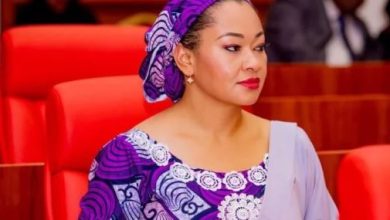Nigeria’s Economy at Risk: Private Sector Demands Action

The Organised Private Sector (OPS) has sounded alarm bells over a rising trend of multinational corporations planning to exit and reduce their involvement in the Nigerian market. This worrying development poses a significant threat to the nation’s economy, prompting urgent calls for government intervention.
To address the escalating situation, the OPS is advising the government to implement measures aimed at stabilizing and ensuring the availability of foreign exchange, particularly for businesses operating in dollar-denominated environments. Stakeholders are also urging the government to initiate dialogues with multinational corporations and the business community, seeking to understand their challenges and collaborate on policy decisions to develop effective solutions.
READ ALSO: Hostile Economy- Landlords are driving us crazy with rent increase Tenants cry out to govt.
The recent announcement by Procter & Gamble (P&G) adds weight to these concerns. P&G’s Chief Financial Officer, Andre Schulten, revealed plans to transition the company’s Nigerian operations to an import-only model, citing challenges associated with operating as a dollar-denominated organization amidst Nigeria’s macroeconomic conditions. P&G, known for manufacturing common household items in Nigeria, contributes $50 million in net sales to the country, forming part of its $85 billion global portfolio.
P&G’s decision follows a series of exits by other major players, including Sanofi-Aventis Nigeria Limited, GlaxoSmithKline Consumer Nigeria Plc, Unilever Nigeria, and Guinness Nigeria Plc. The exodus is attributed to various factors, including the power crisis, unpredictable foreign exchange rates, and a difficult operating environment marked by high interest and exchange rates, smuggling, and excessive taxes.
READ ALSO: NACCIMA Calls for Economic Inclusivity, Enabling Environment for Businesses
President of the Manufacturers Association of Nigeria (MAN), Francis Meshioye, emphasized the need for pragmatic steps to prevent a total collapse of the manufacturing sector. He pointed to challenges such as unstable electricity, unfavorable loan terms, and excessive borrowing rates as contributing factors.
The President of the Nigerian Association of Chambers of Commerce, Industry, Mines and Agriculture (NACCIMA), Delete Kelvin Oye, urged the government to collaborate with the private sector in developing policies to stimulate economic growth and job creation. Oye highlighted the adverse effects of recent economic policies, including the sudden rise in petrol prices and the abolition of the official naira rate, leading to significant job losses and economic damage.
In response to these concerns, the Lagos Chamber of Commerce and Industry (LCCI) recommended that the government implement measures to stabilize foreign exchange availability, particularly in dollar-denominated environments. Dr. Chinyere Almona, the Director General of LCCI, urged the government to adopt a more flexible and transparent foreign exchange policy and engage with multinational corporations to understand their challenges. Additionally, the LCCI emphasized the need for the Central Bank of Nigeria to prioritize currency stability and implement the right policy mix for overall economic stability.
SOURCE: SUNNEWS





